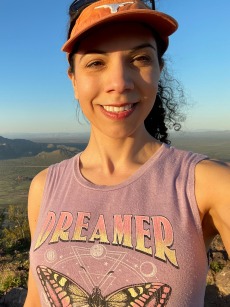
Goli Bagheri is a teacher and an aspiring artist. Trained as a sociocultural historian of the modern era, she focused much of her academic work on cultural production, popular culture, youth movements, media consumption, consumerism, resistance and revolution, with regional expertise in Southwest Asia and North Africa. Since obtaining her doctorate in 2018, she has expanded her research interests to include art, mythology, political economy and postcolonial studies. Goli is deeply committed to public education and also teaches Humanities at Pima Community College.

